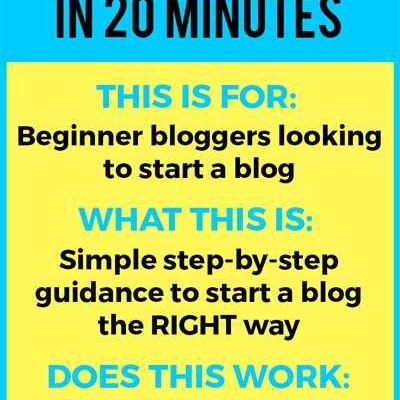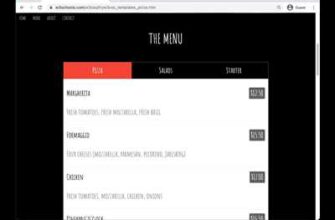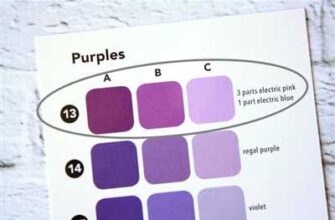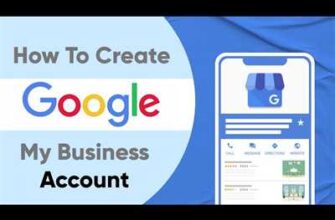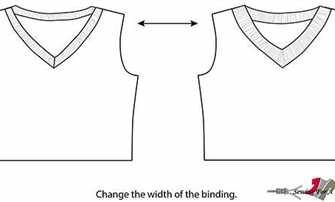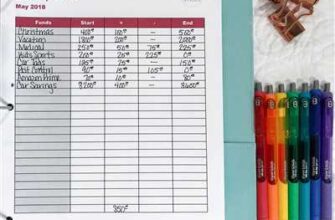
If you’re thinking about starting a blog, you’re not alone. Blogging has become one of the most popular ways for people to share their knowledge, passion, and experiences with others around the world. Whether you want to make money from your blog, build an online presence, or simply have a platform to express yourself, the first thing you need to do is pick a name for your blog.
Once you have a name in mind, the next step is to choose a blogging platform. WordPress and Squarespace are two of the most popular platforms used by bloggers today. While both offer drag-and-drop functionality and a wide range of plugins and tools, they have their differences. WordPress is known for its steeper learning curve but offers more flexibility and control, while Squarespace is simpler to use but may have less customization options.
Before you dive headfirst into creating your blog, it’s important to think about the niche or topic you want to focus on. Having a niche can help you attract a specific audience and establish yourself as an expert in that area. Whether it’s coding, marketing, ecommerce, or any other topic, make sure it’s something you’re passionate about and have knowledge and experience in.
Now that you have a name, platform, and niche, it’s time to start creating content. Content is the heart and soul of any blog, so focus on providing valuable and engaging posts for your readers. Don’t be afraid to let your personality shine through and share your unique perspective on the topics you cover.
Running a successful blog takes time and dedication, but it can also be a rewarding experience. Many bloggers are able to turn their passion into a full-time income, but it’s important to have realistic expectations. Blogging is not a get-rich-quick scheme, and it may take months or even years before you start seeing significant income.
If you’re looking for a comprehensive blogging service that offers all the tools and management functionality you need, consider using Bluehost. Bluehost is a reliable and affordable hosting service that is recommended by many expert bloggers. They offer a 1-click WordPress installation, 24/7 customer support, and a 30-day money-back guarantee.
In conclusion, starting a blog is a great way to share your knowledge, connect with others, and potentially make money. Whether you choose WordPress or Squarespace, make sure you pick a platform that suits your needs and offers the functionality you require. Remember to focus on creating high-quality content that resonates with your audience, and don’t get discouraged if success doesn’t come overnight. With dedication and persistence, you can build a successful blog that stands the test of time.
How to Start a Blog and Make Money – The Definitive Guide 2023
Starting a blog can be a great way to generate income, whether you’re looking for a side hustle or want to become a full-time freelancer. It can also be a fulfilling way to help others by sharing your knowledge and expertise. In this definitive guide, we’ll provide you with step-by-step instructions on how to start a blog and make money in 2023.
The first thing you need to do is figure out your blogging niche and audience. What topics are you most passionate about? What knowledge do you have that can be helpful to others? Once you have a clear idea of your niche and target audience, you can start brainstorming blog post ideas.
Next, you’ll need to pick a blogging platform. WordPress is one of the most popular choices, as it offers a wide range of customization options and tools. There are also other platforms like Squarespace and LinkedIn, which have their own advantages and features. Do some research and choose the platform that suits your needs best.
After selecting a platform, you’ll need to choose a domain name for your blog. This is the web address that your readers will use to access your website. Make sure to pick a name that is catchy, easy to remember, and relevant to your blog’s focus.
Once you have a domain name, you’ll need to sign up for a hosting service. Bluehost is a popular choice for beginner bloggers as it offers affordable plans and excellent customer support. Sign up for a plan that suits your needs, and you’ll be ready to start building your blog.
Once your website is set up, it’s time to start creating content. Write high-quality blog posts that provide value to your readers. Use effective content management tools and plugins to enhance the appearance and functionality of your blog.
When it comes to making money from your blog, there are several strategies you can use. One of the most common ways is through advertising. You can sign up for an ad network like Google AdSense and display targeted ads on your blog. Another option is to create sponsored content and collaborate with brands that align with your niche.
In addition to advertising, you can also make money through affiliate marketing. This involves promoting products or services through special affiliate links. When someone makes a purchase through your link, you earn a commission. Choose affiliate programs that are relevant to your blog’s topic and fit well with your audience’s needs.
Another way to monetize your blog is by creating and selling your own products or services. This could be an e-book, an online course, or even a consulting service. If you have a specific skill or expertise, you can leverage your blog to attract customers and generate income.
Lastly, don’t be afraid to experiment and try new strategies. Making money from blogging can be a learning process, and it may take some time to find what works best for you. Keep track of your progress, analyze your data, and make adjustments as needed.
In conclusion, starting a blog and making money from it is definitely possible in 2023. By following this definitive guide, you’ll be well on your way to building a profitable blog that suits your interests and attracts a loyal audience. Remember, the journey may be hard at times, but with dedication and perseverance, you can achieve your blogging goals.
Figure Out What You Want to Blog About
When starting a blog, one of the most important decisions you’ll need to make is deciding what you want to blog about. Your blog’s niche will determine the content you create and the audience you attract. It’s crucial to choose a topic that you’re passionate about and knowledgeable in, as this will make it easier for you to consistently produce high-quality content.
Here are some tips to help you figure out what you want to blog about:
- Identify your passion: Think about your hobbies, interests, and areas of expertise. What topics do you enjoy talking or writing about the most? Your passion will keep you motivated and engaged in the long run.
- Research popular niches: Look for trending topics and popular niches in the blogging community. This will give you an idea of what people are interested in and what has a potential for growth.
- Consider your target audience: Think about who you want to reach with your blog. Who are your ideal readers? Understanding your target audience will help you tailor your content to their interests and needs.
- Evaluate competition: Take a look at other blogs in your potential niche. Are there already established bloggers covering similar topics? While competition can be a good sign of a profitable niche, make sure you can offer something unique and valuable to stand out.
- Think about monetization: If your goal is to make money from your blog, consider the potential monetization options in your chosen niche. Are there affiliate programs, sponsored post opportunities, or products you can create and sell?
Remember, the topic you choose for your blog should be something you genuinely enjoy and can see yourself writing about for a long time. Don’t be afraid to experiment and try different topics if needed. The most important thing is to start and learn along the way.
What Do You Have Experience In
When starting your blog, it’s important to consider what topics or areas you have experience in. This will help you create valuable and informative content for your audience.
If you have experience in ecommerce or online business, you can use that knowledge to share tips and tricks, discuss different platforms and plugins, and provide guidance on how to manage and grow an online store.
If you’re a freelance writer or have experience in content creation, you can share your insights on writing, editing, and other related topics. You can also provide advice on how to find clients and build a successful freelance career.
Perhaps you have experience in a specific industry or field, such as marketing or project management. You can use your blog to share your expertise, provide tutorials, and offer insights on industry trends and best practices.
If you’re a beginner and don’t have much professional experience, you can still start a blog by sharing your personal journey and what you’ve learned along the way. Many successful bloggers started with no experience and built a large audience by documenting their progress and sharing valuable tips.
When choosing a blogging platform, consider what suits your skills and needs the best. WordPress is a popular choice for bloggers as it’s user-friendly and has a wide range of themes and plugins to choose from. However, there are other platforms available that are more drag-and-drop and don’t require coding knowledge.
Regardless of your experience level or chosen platform, there are many tools and resources available to help you get started. Websites like Bluehost offer easy website setup and reliable hosting services. LinkedIn and other social media platforms are also great places to connect with other bloggers and find inspiration.
Creating a successful blog takes time and hard work, but with passion and dedication, it’s possible to make a full-time income from your blog. Figure out what topics and niche resonate with your audience, and consistently provide valuable content that they can’t find elsewhere.
The definitive guide to starting a blog is to just get started. Don’t get caught up in overthinking and planning. Write your first post, choose a name for your blog, and publish it. The more you practice and publish, the better you’ll become.
Remember, there are millions of blogs out there, so find your unique voice and angle. Be consistent and engage with your audience. Over time, you’ll build a loyal following and create a blog that stands out from the rest.
If you need help or feel overwhelmed, don’t be afraid to reach out for support or hire writers or a blog management service to assist you. Building a blog is a journey, and there’s always something new to learn and improve upon.
| Source: |
|
What Do You Want to Learn More About
When it comes to starting a blog, there are a lot of moving parts to consider. From picking a niche to deciding on a hosting service, creating content to making money, the process can seem overwhelming at first. But don’t worry, we’re here to help you figure it all out!
One of the first things you’ll need to do is decide what topic suits you best. Whether you have a passion for coding, want to learn more about ecommerce, or have expertise in a specific area, picking the right niche will help you attract the right audience.
Once you have your topic in mind, it’s time to think about the technical side of blogging. Bluehost, for example, offers a reliable hosting service that won’t cost you a fortune. You’ll also want to consider which blogging platform to use. WordPress is a popular choice for many bloggers, but platforms like Podia also offer a simple drag-and-drop interface for creating posts.
When it comes to creating content, you might be wondering what tools and resources are available to help you. Thankfully, there is a wealth of knowledge out there for bloggers. From online tutorials to library books, you’ll find plenty of sources to learn from. And if you’re looking to monetize your blog, there are also freelance opportunities and marketing strategies that can help you make an income from your writing.
However, it’s important to note that making money from blogging can be a steep learning curve. It takes time and effort to build up an audience and establish yourself as an expert in your field. But with the right knowledge and tools, it is definitely possible to turn your blog into a profitable venture.
So, whether you’re just starting out or have some experience under your belt, there’s always something new to learn about blogging. Maybe you want to learn more about content management systems or find out how to increase your blog’s traffic. Whatever it may be, the journey of being a blogger is an exciting one, and we’re here to guide you every step of the way.
| definitive | coding | audience | plugins |
| guide | drag-and-drop | making | find |
| freelance | marketing | maybe | blogs |
| expert | income | steeper | hard |
| knowledge | blogger | tools | most |
| create | you | figure | podia |
| experience | step | creating | bloggers |
| simple | around | bluehost | first |
| from | vs | need | service |
| 2 | content | thing | about |
| something | out | niche | pick |
| – | lets | want | in |
| profitable | ecommerce | dont | how |
| started | blog | have | here |
| cost | 2023 | topic | needed |
| your | with | however | offers |
| the | a | 6 | topics |
| when | some | start | above |
| post | should | suits | month |
| posts | management | learn | make |
| источники | money | though | platform |
| what | do | library | blogging |
Is Your Blog Niche Profitable
When starting a blog, one of the first steps to consider is to choose a niche. A niche is a specific topic or area that your blog will focus on. It could be about anything, from food and travel to fashion and technology. But the question is, is your chosen blog niche profitable?
There are many factors to consider when determining the profitability of a blog niche. One thing to keep in mind is that there’s no definitive answer to this question. What may be profitable for one blogger may not be the same for another. It depends on various factors like your target audience, competition, and monetization methods.
That being said, there are certain niches that tend to be more profitable than others. For example, topics like personal finance, health and wellness, and lifestyle often have a high potential for income. These niches attract a wide range of readers who are actively looking for information and willing to spend money on relevant products or services.
On the other hand, niches like poetry, personal diary, or something too specific may not be as profitable. These topics may have a smaller audience and may not offer as many opportunities for making money through ads, sponsorships, or affiliate marketing.
It’s important to do your research and figure out if there’s a market for your chosen niche. Look for other blogs or websites in your niche and see if they are making money. Study their monetization strategies and see if you can apply them to your own blog. Additionally, use tools like Google Trends or keyword research tools to see if there’s enough interest in your niche.
When choosing a niche, also consider your own knowledge and passion. It’s easier to create content and write blog posts about a topic you are genuinely interested in. If you have expertise or experience in a particular area, that can also be an advantage. Your love and knowledge for the niche will shine through your writing and attract more readers.
Furthermore, consider the competition in your niche. If there are already many established blogs in your chosen niche, it may be harder to stand out and attract readers. However, this doesn’t mean you shouldn’t go for it. You can still find ways to differentiate yourself and provide unique value to your audience.
In terms of platform, there are many options available for starting a blog. WordPress, Blogger, and Squarespace are popular choices among bloggers. Each platform has its own features and functionality, so you’ll need to decide which one suits your needs the best. WordPress, for example, offers more flexibility and customization options but requires some coding knowledge. On the other hand, Squarespace offers an easy-to-use drag-and-drop interface, but may have limited functionality.
Finally, keep in mind that blogging takes time and effort before you start seeing any income. It’s not a get-rich-quick scheme, but rather a long-term commitment. Bloggers often need to build an audience, establish authority in their niche, and create high-quality content before they can start making money.
In conclusion, the profitability of your blog niche depends on various factors. Choose a niche that aligns with your passion, has a potential for income, and is not overly saturated with competition. Research other successful blogs in your niche, study their strategies, and find ways to differentiate yourself. With the right topic, hard work, and effective monetization strategies, you can turn your blog into a profitable endeavor.
Step 2: Pick a blogging platform
When it comes to making your blog, you need to choose the right blogging platform that suits your needs. There are several popular platforms out there, but two of the most common ones used by bloggers are WordPress and Blogger.
WordPress is a content management system that is widely used and offers a lot of customization options. It is also beginner-friendly and has a large community of users, making it easy to find help and support when needed. WordPress also has a wide variety of themes and plugins to choose from, allowing you to create a visually appealing and functional blog. You can start with a free trial and then upgrade to a paid plan if needed.
Blogger, on the other hand, is a blogging platform that is owned by Google. It is a simpler platform compared to WordPress and is more suitable for beginners who don’t want to deal with the steeper learning curve of WordPress. Blogger also offers several themes to choose from, but the customization options are more limited compared to WordPress. However, if you just want to write and don’t care much about coding or creating a highly customized blog, Blogger might be the platform for you.
Additionally, there are other platforms like Squarespace and Podia that offer more specialized features. Squarespace is known for its aesthetic templates and user-friendly interface, while Podia is geared towards creators who want to sell digital products or online courses.
When picking a platform, consider your audience and the topics you will be writing about. WordPress is more suitable for professional bloggers who want to monetize their blog and have more control over their content and design. Blogger might be a better fit for casual bloggers or hobbyists who just want to share their thoughts with the world without the need for advanced features.
In conclusion, it’s important to research and try out different blogging platforms to find the one that best suits your needs. Consider your goals, budget, and technical abilities when making a decision, and remember that it’s okay to switch platforms if you find that your current one doesn’t meet your needs.
| WordPress | Blogger | Squarespace | Podia |
|---|---|---|---|
| Wide customization options | Simple and beginner-friendly | Aesthetic templates | Specialized for selling digital products |
| Large community of users | Owned by Google | User-friendly interface | Online courses and memberships |
| Wide variety of themes and plugins | Limited customization options |
Remember, the blogging platform you choose is just a tool to help you write and publish your posts. Ultimately, it’s the quality of your content and your marketing efforts that will determine your blog’s success and profitability.
Squarespace
If you’re a freelance writer and thinking about starting a blog, Squarespace is a service that offers all the tools you need to get started. Though it may be hard to figure out where to begin, Squarespace provides a user-friendly interface and drag-and-drop functionality that makes creating a blog a breeze.
One of the great things about Squarespace is that they have a library of beautiful themes to choose from, so you can find the perfect look for your blog. Whether you’re a writer looking to showcase your work or a blogger wanting to dive into a niche topic, Squarespace has the functionality and management tools to help you create a professional blog.
Squarespace also offers eCommerce functionality, which is a great option if you want to monetize your blog by selling products or services. Their built-in eCommerce management makes it easy to set up and run an online store.
If you’re considering WordPress as an alternative, Squarespace is a great choice for those who don’t have coding knowledge or experience. With Squarespace, you don’t have to worry about hosting or domain costs, as everything is included in the monthly subscription fee. Plus, Squarespace offers a free trial, so you can test out the service before committing.
One expert source, Neil Patel, said that Squarespace is a “definitive guide to starting a blog in 2023” and highly recommended it. He also mentioned that Squarespace is perfect for bloggers who don’t want to spend a lot of time on the technical side of things and just want to focus on creating great content.
Squarespace also integrates well with other platforms like LinkedIn, allowing you to easily share your blog posts and reach a wider audience. If you’re a writer looking to build your personal brand or establish yourself as an expert in your industry, Squarespace can help you do that.
In conclusion, Squarespace is a user-friendly blogging platform that offers the tools and functionality you need to get started. Whether you’re a writer looking to share your passion or a blogger wanting to make money, Squarespace has the features and support to help you create a successful blog.
WordPress
If you want to start your blog, WordPress is a great platform to consider. It offers a simple and user-friendly interface that does not require any coding knowledge to get started. Whether you have a specific niche in mind or not, WordPress provides a range of themes and customization options to suit your needs.
When it comes to blogging, one of the most important things is to pick a name for your blog that reflects your passion or the topics you will be writing about. There are more than a million different WordPress themes to choose from, so you can find the perfect look and feel for your blog.
While there can be a cost associated with running a WordPress blog (such as hosting fees), there are also free options available. Some popular hosting services include Bluehost and Podia, which offer a range of plans to suit different needs and budgets. Additionally, WordPress has a drag-and-drop functionality, making it easy to create and edit your content without any coding knowledge.
If you want to monetize your blog and make money from it, WordPress offers various tools and plugins that can help with content marketing, e-commerce, and more. Whether you want to offer services as a freelance writer, sell products, or run advertisements, WordPress has options available to assist you in generating income.
One of the best things about WordPress is the community around it. There are many experienced bloggers and experts who can offer guidance and support. You can find helpful resources, tutorials, and tips in the WordPress library, as well as connect with other bloggers through online communities such as LinkedIn groups.
When starting your blog on WordPress, here are some steps to follow:
- Pick a topic or niche that you are passionate about and that will resonate with your audience.
- Choose a domain name that reflects your blog’s topic and is easy to remember.
- Select a hosting service that suits your needs and budget.
- Install WordPress on your chosen hosting service.
- Select a theme that aligns with your blog’s topic and style.
- Create engaging and valuable content through blog posts, videos, or podcasts.
- Promote your blog through social media, guest posting, and email marketing.
- Continuously learn and improve your blogging skills to attract more readers and make your blog profitable.
Remember, starting a blog on WordPress is a journey that requires time, effort, and dedication. It’s not always easy, but with the right knowledge and perseverance, you can build a successful and profitable blog that aligns with your goals and passions. Don’t be afraid to ask for help or seek guidance from other bloggers who have been in your shoes. Happy blogging!
Squarespace vs WordPress: Which should you use?
When it comes to deciding which platform to use for your blog, one of the biggest choices you’ll need to make is between Squarespace and WordPress. Both platforms have their own unique features and advantages, so it’s important to understand what each one offers and how it aligns with your blogging goals.
If you’re a freelance blogger looking to start your own blog, there are a few simple steps you’ll need to take. First, figure out what topics you want to blog about and what audience you want to target. This will help you create content that appeals to your intended readership. Next, determine how much time and experience you have with blogging. If you’re just starting out, it may be best to choose a platform that is more user-friendly and requires little to no coding knowledge.
Squarespace is a drag-and-drop website builder that’s perfect for beginners. It offers visually appealing themes and an intuitive interface that makes it easy to create and manage your blog. With Squarespace, you can find all the necessary functionality you need to start blogging right away, including an integrated ecommerce service. However, it’s important to note that Squarespace does have limitations when it comes to customizing your blog’s design and adding plugins.
On the other hand, WordPress is a content management system that caters to both beginner and expert bloggers. With a vast library of themes and plugins, WordPress allows you to create a blog with the exact functionality you desire. The flexibility and customization options available through WordPress make it a popular choice among bloggers who have some coding knowledge and want complete control over their website.
One key factor to consider when choosing between Squarespace and WordPress is how much money you’re willing to invest in your blog. Squarespace offers all-inclusive pricing plans, with the option to pay monthly or annually. WordPress, on the other hand, is free to use, but you’ll need to purchase a domain name and web hosting service in order to make your blog live. Bluehost is a popular web hosting service that offers WordPress-specific hosting plans.
If your goal is to monetize your blog and make a profit from it, WordPress may be the better choice. With WordPress, you have more control over your blog’s design and can find various plugins to help you with marketing, ecommerce, and other income-generating activities. Squarespace, though it does offer some ecommerce functionality, is generally not as flexible in terms of monetization options.
In conclusion, both Squarespace and WordPress have their own strengths and weaknesses. Squarespace is great for beginners and those who want a simple, user-friendly platform, while WordPress offers more customization options and is ideal for bloggers who want complete control over their website. Consider your blogging goals, your budget, and your desired level of control when deciding which platform to choose.

